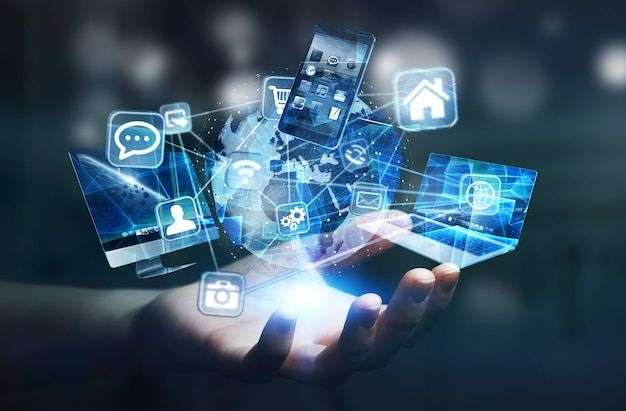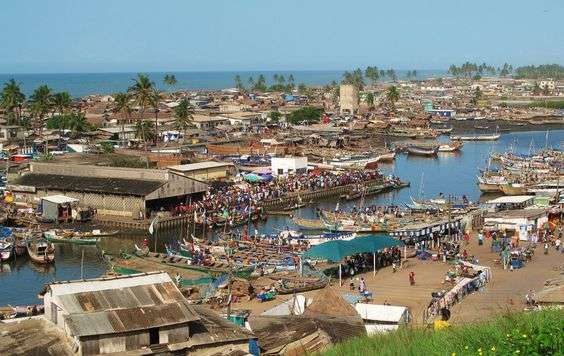
The need of digital inclusion has never been greater as the advantages of the digital economy spread throughout the world, especially in Africa, which has a wealth of untapped digital potential that may be fully realised with the correct amount of ingenuity and collaboration.
Daisy Zhu, Marketing VP for Overseas Carrier Accounts at Huawei, delivered the message. Zhu discussed Huawei’s innovations at MWC Kigali 2023, emphasising how they may hasten Africa’s digitization and enable the continent’s population to reap the benefits of digital technology.
Economic growth has already been demonstrated to be enhanced by digitalization. According to research, the growth of the digital economy is 2.5 times faster than that of the traditional sector. Every US dollar increase in per capita ICT spending in developing nations results in an average GDP growth of $3.5.
Africa’s Opportunity in Digital Skills

Digitalization has the potential to transform lives and give people more power. According to a report by the China Academy of Information and Communications Technology, digital economy refers to an emerging economic form that promotes accelerated restructuring of economic growth and governance models by continuously improving digital, networking, and intelligent capabilities through the extensive integration of digital technology and substantial economy. The report also highlights that the added value of digital economy in China accounted for 36.2% of GDP in 2019, up by 1.4 percentage points on a year-on-year basis.
Zhu’s statement about China’s GDP growth and poverty rate decreasing as a result of the digital economy is supported by the report’s findings. African nations can benefit similarly from the digital economy by enhancing their digital skills, using data analytics, and establishing local partnerships. By doing so, they can unlock a bright future for themselves and ensure that everyone shares in the benefits of the digital future.

Over 800 million people, or over 60% of the continent’s population, still lack internet connection due to insufficient connectivity. This is mostly due to the cost or lack of broadband connectivity, especially in rural areas with substantial populations. According to Zhu, “connection remains the cornerstone of digital inclusion as a result.”
It has always been difficult for mobile carriers to provide mobile broadband connectivity to underserved and unserved areas, particularly when it comes to backhaul and energy. In order to do this, she said, Huawei has created a number of innovations for base station hardware that are especially intended for rural installations.
RuralStar Pro and RuralLink: Simplifying Wireless Network Deployment in Rural Areas

One module that may be deployed by anyone in a village and remotely configured by an engineer is the RuralStar Pro solution, for instance, which combines a baseband unit (BBU), a remote radio unit (RRU), and a relay device. Using less than 120W, it is also incredibly power-efficient. Alternatively, independent base station deployment is avoided by using the RuralLink solution, which makes use of microwave fronthaul technology to allow rural sites to share the baseband resources of already-existing base stations. These rural solutions aim to simplify wireless network deployment and reduce total cost of ownership. In less than two years, operators may recoup their rural investment thanks to the integrated transmission, power supply, and wireless base station solutions.
However, Zhu made clear that digital platforms are also necessary for the cause of digital inclusion; network connectivity is only the first step in the process.

Operators have the ability to employ cutting-edge digital intelligence platforms, like Huawei’s CWR (Collaboration Workspace Realisation), to pinpoint the specific areas that require attention and execute targeted marketing campaigns to effectively advertise their digital and internet services, along with reasonably priced entry-level devices for accessing them.
In order to provide beneficial digital services—like those found in the Fintech industry, for instance—operators also require a digital service platform that can take use of connectivity. In Africa, fintech is flourishing, according to Daisy Zhu. “In the past two years, the number of financial technology start-ups in Africa has exceeded 5,000.” Increase the number of people who can use financial services, switch payment methods, and access the digital world by expanding connectivity from urban areas to rural ones.
Zhu, meanwhile, warned operators that ensuring digital inclusion involves much more than just technology. The ICT competencies of the individuals you want to include are another important consideration. To put it plainly, not everyone is proficient with search engine usage. According to a Research ICT Africa poll, many individuals find that having broadband connection and being able to afford it is not enough to make use of it, or not to the extent that is required in the digital economy. This is a major barrier to internet usage.

This means that in order to promote digital skills and offer the support that is required, operators, vendors, governments, local communities, and other businesses should collaborate. For instance, Huawei trained educators in Senegal on digital learning and teaching abilities during the COVID-19 epidemic by offering terminal and online education technology training.
More than half of Ghana’s population lives in rural areas without access to any kind of ICT, making it particularly common for women to lack the necessary degree of digital literacy. Huawei has so also partnered with Ghana’s “Girls-In-ICT” initiative, which seeks to increase digital literacy and assist women in gaining an equal share of the benefits associated with digitization. The programme trained around 5,000 females in five different locations by 2022.
The actual potential of the digital economy in Africa is revealed by the success of these ventures. Africa will see enormous changes as a result of the digital economy in a variety of areas, including intelligent cities, transportation, businesses, healthcare, and food supply chains and living arrangements. The digital transformation strategy of the African Union also has a roadmap in place, with the goal of creating a “integrated and inclusive digital society and economy in Africa” by 2030.
In conclusion, Zhu stated that collaboration and innovation across stakeholders from all sectors will be necessary to realise that objective. “We think that innovation and collaboration will spur Africa’s digital transformation, unleash its digital potential, improve people’s quality of life and industrial productivity, and usher in a smarter Africa.”




